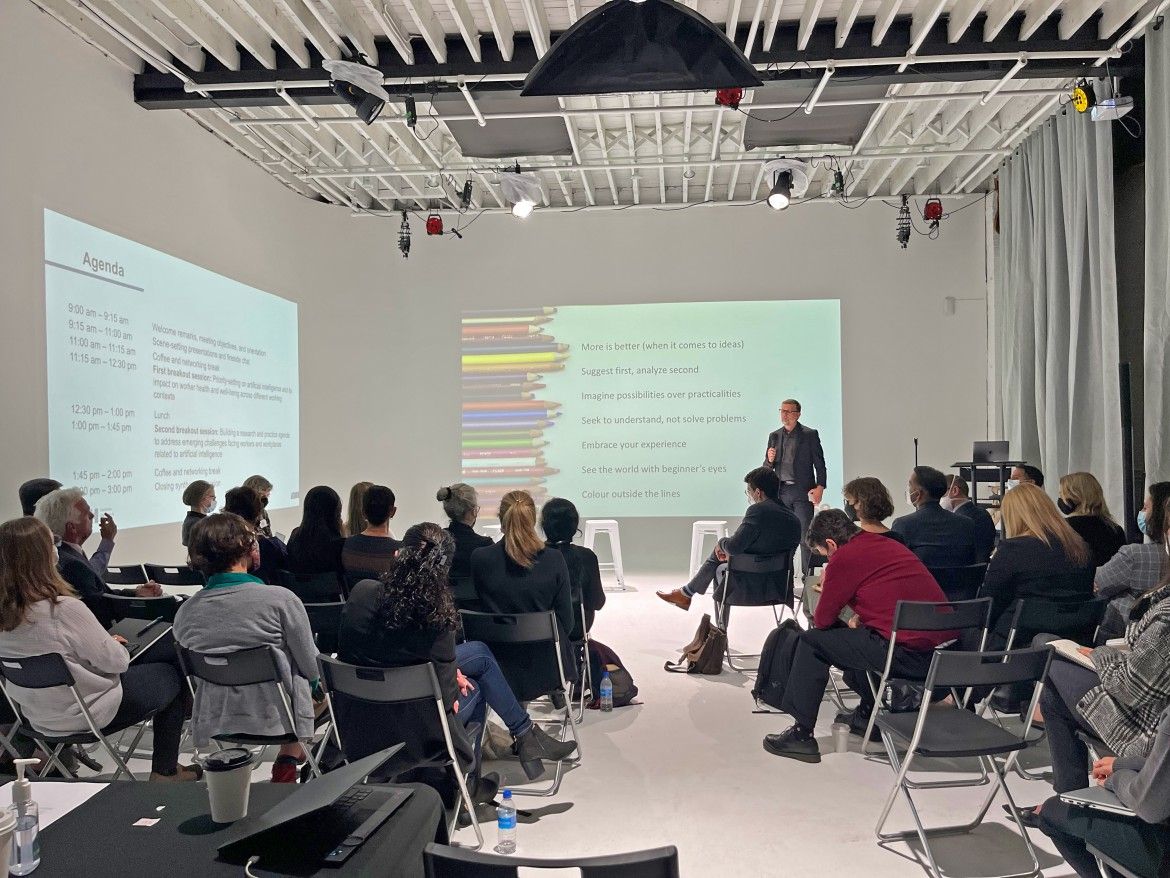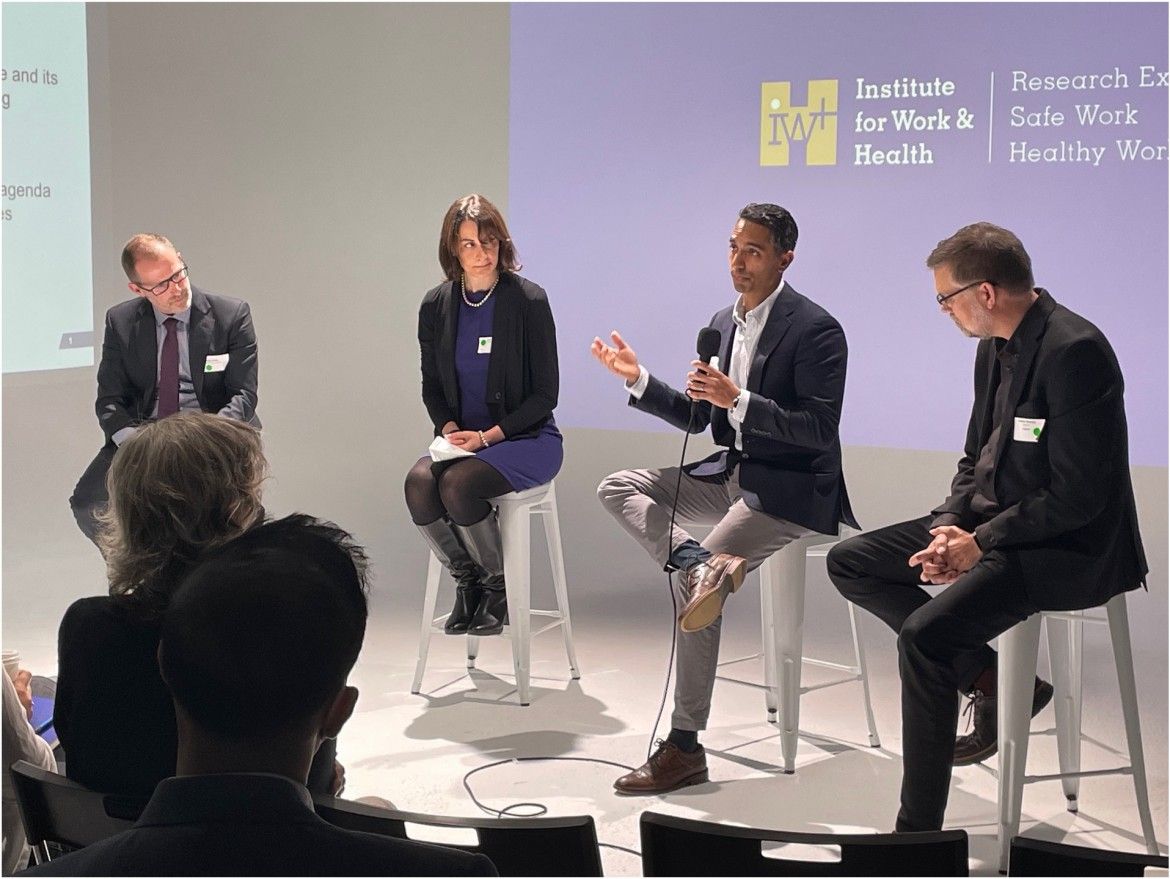From the facial recognition that unlocks phones to the algorithms that shape people’s social media feeds, from the virtual assistants that check the weather to the navigation apps that detect traffic jams, the uses of artificial intelligence (AI) are already enmeshed in our daily routines. AI is not a future concern; it’s already here.
Yet, crucially, what AI means for workers and workplaces is still not fully understood. That was one of the main messages heard at a recent collaboration meeting held by an Institute for Work & Health (IWH) research team. No research that we know has taken an occupational health and safety perspective or applied an equity lens to examining how workplace AI applications impact workers,
especially groups already experiencing other forms of inequity, said Dr. Arif Jetha, IWH scientist and event host.
And given the pace of development and adoption of AI in all corners of our economy, the AI problems that we identify today will not be the same problems we face tomorrow,
noted Dr. Cameron Norman, principal of the consultancy Cense and facilitator of the meeting. In designing a research program, researchers need to be flexible and ready to pivot, added Jetha.
The event, which took place in October 2022 in downtown Toronto, was held to kick off a research program at IWH on the impact of AI on worker inequities and health and safety. Led by Jetha, the research is funded by the Social Sciences and Humanities Research Council of Canada (SSHRC), the Future Skills Centre and the Workplace Safety and Insurance Board (WSIB).

The event brought together about 50 participants representing a cross-section of stakeholders from Ontario’s health and safety system and innovation sector. The meeting began with a series of scene-setting presentations. Participants then took part in collaborative exercises to discuss the implications of AI and help generate a research agenda. (A report will be available on the project page in the coming weeks.)
AI has the potential to affect workers and workplaces in ways that differ from the way they were affected by past waves of automation,
said Jetha. Studies on the future of work describe advanced technologies disrupting work at a speed and scale that are greater than in past periods of technological change.
The impact of AI on society has been a topic of discussion for many years, but the pace of advances in computing and analytics has accelerated AI’s arrival, said one of the panelists at the meeting, Dr. Laura Rosella, an associate professor at the University of Toronto’s Dalla Lana School of Public Health and lead of the Artificial Intelligence for Public Health (AI4PH) training platform.

During the wide-ranging discussions, participants highlighted critical future directions for research practice related to AI. These included the need to grow a collective literacy about what AI is and where it’s used, to develop an evidence base about its harms and benefits to workers, to foster organizations willing to be champions of safe and healthy AI use, and to engage stakeholders of all types in developing frameworks for engaging with AI in the workplace, among other topics.
Many people are already deciding how AI is used in our lives,” Rosella said during her presentation. “But we need to bring the perspectives of work and health to the spaces where those decisions are being made.